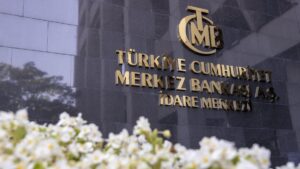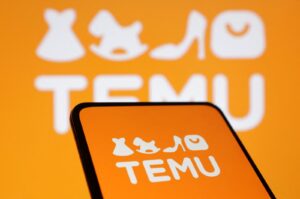The artificial intelligence agent market is poised for explosive growth. Its value is predicted to soar from $5.1 billion in 2024 to a staggering $47.1 billion by 2030, reflecting an impressive compound annual growth rate (CAGR) of 44.8%.
Prominent investment firms like Andreessen Horowitz have also demonstrated confidence in the sector, raising $7.2 billion to fund AI ventures.
AI agents are software systems capable of perceiving their environment, making decisions based on these perceptions, and independently taking actions to achieve specific objectives.
In essence, they act as digital assistants that can learn, make decisions, and execute tasks on behalf of users. Their technological and commercial potential is driving increased interest among investors worldwide.
Significant investments
H Company of France secured a $220 million investment in 2024 to develop its “Runner” model aimed at advancing artificial general intelligence (AGI).
Auxia, focusing on marketing and sales AI agents, received $23.5 million in funding. Legal tech solutions provider Genie AI attracted $18 million, while OptimHire, specializing in automating recruitment processes, raised $5 million.
Breakout, which develops AI-powered sales agents, obtained $3.25 million, alongside an additional $5.5 million seed investment led by General Catalyst. Scout AI, working on autonomous systems for defense, received a Pentagon-supported investment of $15 million.
Human-AI collaboration
Carnegie Mellon University has pioneered a Chrome extension called CowPilot, enabling human intervention when AI agents encounter uncertainty.
With CowPilot, users can step in to click or type when the agent hesitates.
Professor Jeffrey Bigham, who leads the project, states that the system developed by his student Faria Huq is “almost so obvious that it’s hard to believe most people don’t think this way.”
The most intriguing aspect is that Bigham and Huq claim that when a human and an agent work together, they can complete more tasks than either can accomplish alone.
In a limited test, human-agent collaboration completed 95% of the assigned tasks, with humans needing to perform only 15% of the total steps.
“Webpages can often be challenging to navigate, especially if you’re unfamiliar with a specific page,” says Bigham. “Sometimes the agent can help you discover a good method that would take longer for you to find on your own.”
Türk Telekom embraces AI to boost efficiency, enhance Customer Experience
One of Türkiye’s leading telecommunications and technology companies, Türk Telekom is reshaping operational efficiency and revolutionizing customer experience through its strategic investments in artificial intelligence.
In alignment with Türkiye’s push for national technological advancements, Türk Telekom has rapidly implemented AI-based solutions to support its goals.
The global AI market is expected to reach a staggering $1.5 trillion by 2027, according to the global market research company Statista.
In Türkiye, Türk Telekom stands out as a pioneer having established the country’s first operator-based AI center. The company prioritizes research and development (R&D) efforts to foster local production in the AI sector.
Türk Telekom invests in AI across various areas, including customer service, network optimization, and fault management. Its AI Assistant quickly responds to customer inquiries, reducing call center workloads by up to 30% through natural language processing (NLP) technology. Round-the-clock uninterrupted service improves customer satisfaction significantly.
Reduced fault detection times
Leveraging 5G and AI-supported smart city applications, Türk Telekom integrates AI into traffic, energy, and security management. Predictive analytics powered by AI can foresee network issues, cutting fault detection time by 50%. Machine learning (ML) algorithms also optimize traffic management, further enhancing efficiency.
AI modules developed under Türk Telekom Labs are being implemented through collaborations with public and private sectors. These locally developed and secure AI solutions safeguard critical infrastructures. Additionally, Türk Telekom subsidiary TT Ventures continues to invest in AI startups, driving innovation and growth in the field.
Hydrogen technology startup Fourier secures $18.5 million investment
As global energy demands continue to rise, Fourier, a hydrogen technology startup, has secured $18.5 million in a Series A funding round, with Borusan Ventures among the investors. With the significant backing, Fourier aims to accelerate its growth and solidify its position as a key player in the clean energy revolution.
Global energy demand is projected to increase by 50% by 2050, with hydrogen expected to account for 12% of the global energy mix, according to the International Energy Agency (IEA). McKinsey analysis suggests that the hydrogen economy could reach $1.4 trillion by 2030 and exceed $2.5 trillion by 2050. These forecasts bolster confidence in innovative companies like Fourier to lead this growth trajectory.
The investment marks another strategic addition to the sustainable energy technologies-focused portfolio of Borusan Ventures, the corporate venture capital arm of Borusan Group.
Driven by its modular electrolyzer technology, Fourier, based in the United States, seeks to further advance its innovative hydrogen technology and support the clean energy transition.
Its funding round was led by General Catalyst and Paramark Ventures, with additional support from major investors, including Airbus Ventures, MCJ Collective, and Positive Ventures.
Challenges in hydrogen adoption
Despite the promise of hydrogen as a clean energy source, traditional production methods face challenges like high costs, logistical complexities, and inefficiencies that limit widespread adoption.
Fourier seeks to address these barriers through its modular and software-based electrolyzer system. The technology enables on-site and on-demand hydrogen production, reduces installation costs, and offers scalability.
Real-time algorithms optimize energy efficiency, removing doubts about competitiveness and sustainability for investors.
Promising venture
Highlighting Fourier’s ability to tackle logistical and cost barriers with its modular solutions, Borusan Ventures founder and President Defne Kocabıyık Narter, said the investment reflects the company’s vision to contribute to a sustainable future.
“We are excited to support Fourier’s mission of making hydrogen accessible for transportation, energy storage, and industrial applications,” said Narter.
Siva Yellamraju, Fourier’s founder and CEO, brings extensive experience to the company, having previously sold startups to tech giants Apple and Google.
With Fourier, Yellamraju aims to revolutionize the energy sector: “Our goal is to make hydrogen accessible for everyone. Our modular system offers solutions for diverse needs, from fueling a fleet of trucks to powering large-scale industrial facilities,” he says.
Open source language models empowering innovative startups
The BAŞLAT LLM Impact Program is gearing up to mark its second year, seeking to offer extensive support to startups developing generative artificial intelligence and open-source Large Language Model (LLM) solutions.
Initiated through collaboration between Meta, Hello Tomorrow Türkiye, and Türkiye AI Initiative, the program is inviting startups aiming to gain a competitive edge in global markets to apply by April 30.
Since 2020, Hello Tomorrow Türkiye has partnered with Meta to drive innovation-focused entrepreneurship through the BAŞLAT Program. The initiative has contributed significantly to startups operating in areas such as digital health, educational technologies, agricultural tech, smart cities, and data and cybersecurity.

With the inclusion of Türkiye AI Initiative last year, the program shifted its focus to AI-centered projects and prioritized open-source LLM-based solutions.
Responsible AI
Eligible startups for the BAŞLAT LLM Impact Program must be legally registered active commercial entities in Türkiye, have at least two members on their team, and be ready to secure Series A-level investment.
Applicants should also have successfully completed at least one proven proof-of-concept (PoC) with verifiable references.
The program seeks to support startups utilizing generative AI, natural language processing (NLP), or LLM technologies to create innovative products or services, particularly those integrating open-source LLM frameworks like LLaMA.
Additionally, adhering to ethical and responsible AI principles is a critical requirement for all participants.





















































Be First to Comment